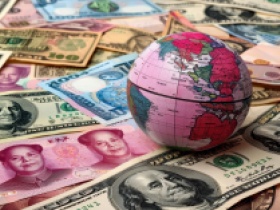What global currency movements mean for your consumption and investment decisions:

Sep 02, 2024
According to the IMF’s Article 4 published in March 2024, the Jamaican dollar has appreciated against the US dollar in real terms by 1% in 2021-2022 and by 6.6% in 2022-2023. Of note, the Jamaican dollar has also roughly retained its nominal value against the Japanese Yen year to date in 2024 (primarily a result of an appreciation in the Yen caused by a surprise increase in interest rates by the Bank of Japan on July 31). What does this mean for investors and consumers?
- Pivot away from European Luxury towards Japanese Luxury: 2022 and 2023 were opportune years to buy a European car or take a European vacation. The Jamaican dollar appreciated against the euro in 2022 and depreciated very modestly against the currency in 2023. However, it's now a good time to consider Luxury Japanese vehicles. Year to date, in 2024, the nominal Jamaican dollar exchange rate has fallen more against the euro (2.9%) than it has against the US dollar (1.6%) and the Yen (0.4%).
- Hard currency earners receive less: On the flip side, remittance receivers are getting less Jamaican dollars in real terms for every US dollar they receive. With appreciation in the real JMD/USD exchange rate, remittance receivers can buy less in Jamaica with the same amounts of US dollars that they were receiving. This also goes for tourism workers or companies that generate foreign exchange.
- Jamaican goods becoming more expensive to the rest of the world: Another downside is the loss in competitiveness of our exports. Jamaican vacations are now more expensive to the average American or European tourist. In contrast, the Mexican Peso has nominally devalued against the US dollar by close to 17% year to date in 2024. This means Mexican vacations are 17% cheaper to the average American tourist than they were last year. Similarly, Mexican production, labour and services are also cheaper to U.S. investors and companies on the year.
It is common to associate exchange rate appreciation and more consumption with progress and prosperity. While this may be true for wealthy consumers, the opposite is true for exporters and those Jamaican receiving remittances. In fact, some Central Banks have pursued policies to depress the value of their exchange rate to stimulate exports – South Korea, Japan, and China for example. This is one common component of an export driven economic policy. As with any journey to wealth creation, there are trade offs along the way.
Marian Ross-Ammar is Vice President, Trading & Investment at Sterling Asset Management. Sterling provides financial advice and instruments in U.S. dollars and other hard currencies to the corporate, individual and institutional investor. Visit our website at www.sterling.com.jm
Feedback: If you wish to have Sterling address your investment questions in upcoming articles, e-mail us at: info@sterlingasset.net.jm
